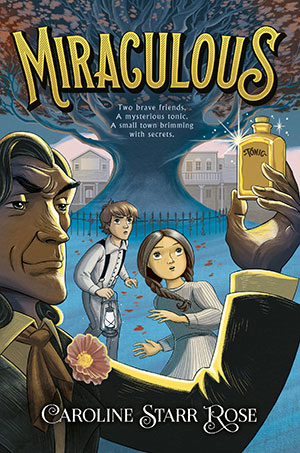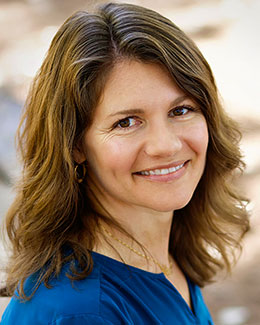Avi’s 2024 Summer Blog Series
Caroline Starr Rose
From Avi: As I did in the summer of 2023 and the summer of 2022, I’ve invited 13 admired middle grade authors to write for my blog for the next three months. I hope you’ll tune in each Tuesday to see who has answered these two questions we’re frequently asked by readers. You should have a list of terrific books to read and share by the end of the summer … along with new authors to follow!
Where did you get your idea for a specific book of yours?

I write books to make sense of the world — this gloriously weird, sometimes heartbreaking, marvelous place we call home. Years ago on a visit to a St. Louis museum, I heard a talk about charlatans (people who intentionally deceive others for their own personal gain). It stirred up all sorts of questions for me:
Why would a person choose to trick others? Why do we believe the things that we do? What might we be willing to try to “fix” the things about ourselves that make us unhappy or even afraid?
Exploring these questions led me to Miraculous, a novel that Publishers Weekly described as “a historical thriller [and] chilling adventure” and that Kirkus Reviews called “a deliciously sinister read.”
Here’s a synopsis:
Thirteen-year-old Jack knows what cured his baby sister when his family thought she might never get well — Dr. Kingsbury’s “Miraculous Tonic.” Guaranteed to relieve maladies known to man or beast, Dr. Kingsbury’s potion can cure everything from pimples to hearing loss to a broken heart, and Jack himself is a witness to the miraculous results and the doctor’s kindness. When he had no money, the doctor didn’t turn him away but gave him the tonic for free along with a job — to travel with him from city to city selling his cure-all elixir.
When Dr. Kingsbury and Jack arrive in Oakdale, the town at first feels like any other they’ve visited. But it’s clear Oakdale is a town with secrets, and its citizens are slow to trust strangers.
Then Jack meets Cora, and a friendship neither expected starts to bloom. Together they uncover something else they didn’t expect — not only secrets about the town but also Dr. Kingsbury. As they race to discover the truth, they’ll have to decide who and what to believe before it’s too late.
What I didn’t know when I first started writing Miraculous was how personal the book would become for me.
Almost twelve years ago my husband, Dan, was diagnosed with early-onset Parkinson’s Disease a few weeks before his thirty-ninth birthday. Parkinson’s is a movement disorder characterized by tremors, stiffness, difficulty moving the body, and problems with balance. Most people with Parkinson’s are in their sixties or seventies or eighties, not dads with young children.
A few months in, Dan’s neurologist asked if we’d talked about Parkinson’s with our boys (who were nine and eleven at the time). We told her we’d explained to them that Parkinson’s wasn’t a disease someone died from but something they lived with. We said we didn’t know what the future would look like, but that Dad would get worse as the years passed. Most importantly, we told them it was okay to feel worried or confused or mad or scared or embarrassed, that those were normal feelings and they could talk to us and ask questions any time they needed to. We talked to their teachers, too, to let them know what was going on at home and asked them to be in touch if they saw any changes in our sons.
Good, Dan’s neurologist said, because I once had an early-onset patient who decided he’d hide the disease from his children.
I’ve never forgotten those sad words. What would make someone feel this was the best (or maybe their only) option? How could someone hide a condition where their body worked to betray them?
Years later, as I started Miraculous, the story of this father came back to me. Because a charlatan selling a cure-all tonic wants customers who feel needy or weak, the sort who are willing to try anything. So I gave Walter Ogden, the young teacher in my book, the shaking palsy (what Parkinson’s was called long ago). He’s convinced he’ll lose his job if anyone notices and sets all his hope on Dr. Kingsbury’s miracle cure.
I hope readers who pick up Miraculous consider the power of persuasive personalities like Dr. Kingsbury. I’d like them to see that while advertising techniques of the past might seem extreme or less polished than what we see today, there are still many similarities, especially when it comes to products that promise to “fix” us. And ultimately I hope readers realize there is no shame in being imperfect. (Spoiler alert: No one is perfect.) All of us have worth, no matter our abilities.
If you had one piece of advice to give to a young would-be writer, what would it be?
Here’s a little secret. I love to write, but it’s not always easy. Sometimes writing a book feels like an impossible task. When that happens, I stop using the “w” word entirely. Instead I say I’m playing with words. I’m experimenting or practicing or tinkering. When you’re playing and experimenting, there are no mistakes, just chances to learn new things. This really takes the pressure off.
If writing ever feels hard, I encourage you to try it!
Particulars

Caroline’s next book, The Burning Season, coming May 2025, is a survival story in verse about a girl who’s been raised in a fire tower in New Mexico’s wilderness.
Caroline Starr Rose
1 thought on “Summer Blog Series: Caroline Starr Rose”
I love everything about this post. It makes me want to read all of her books. I’ll be looking today to see what the library has.